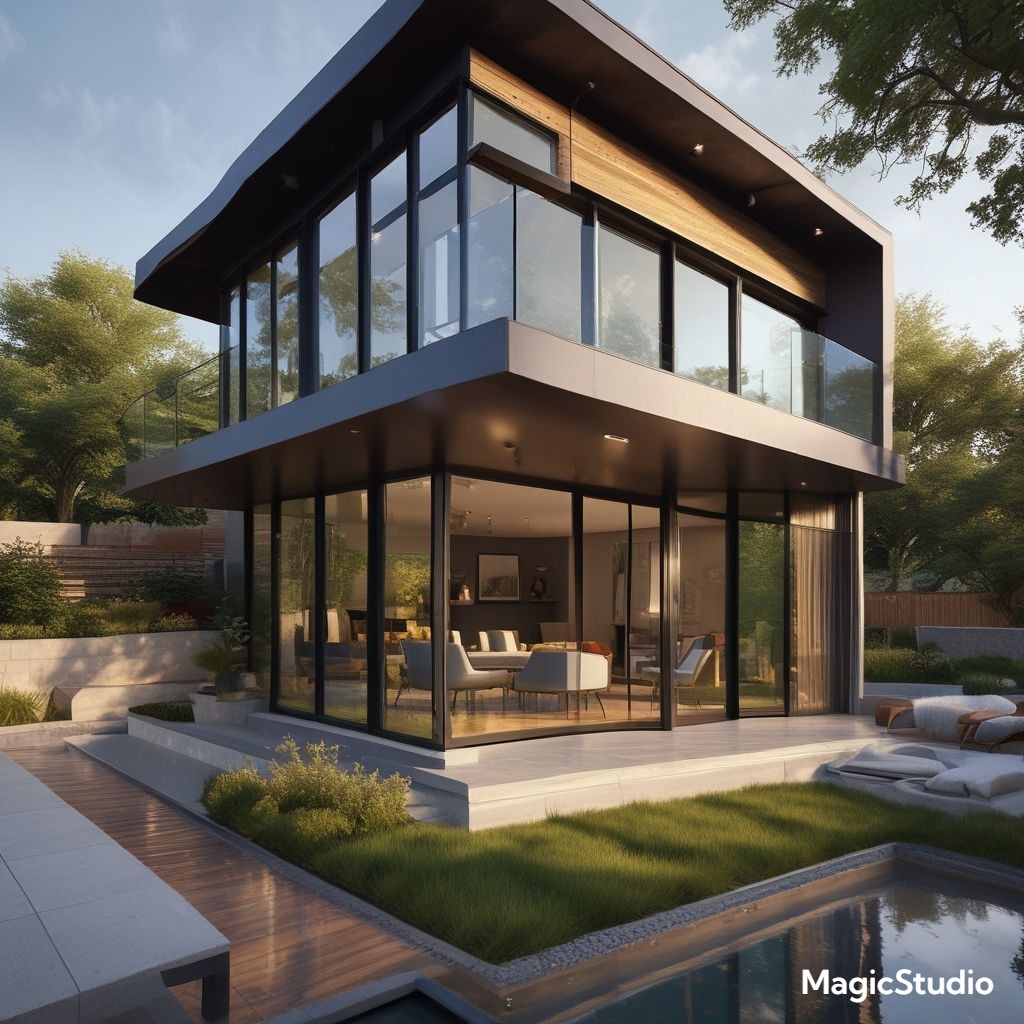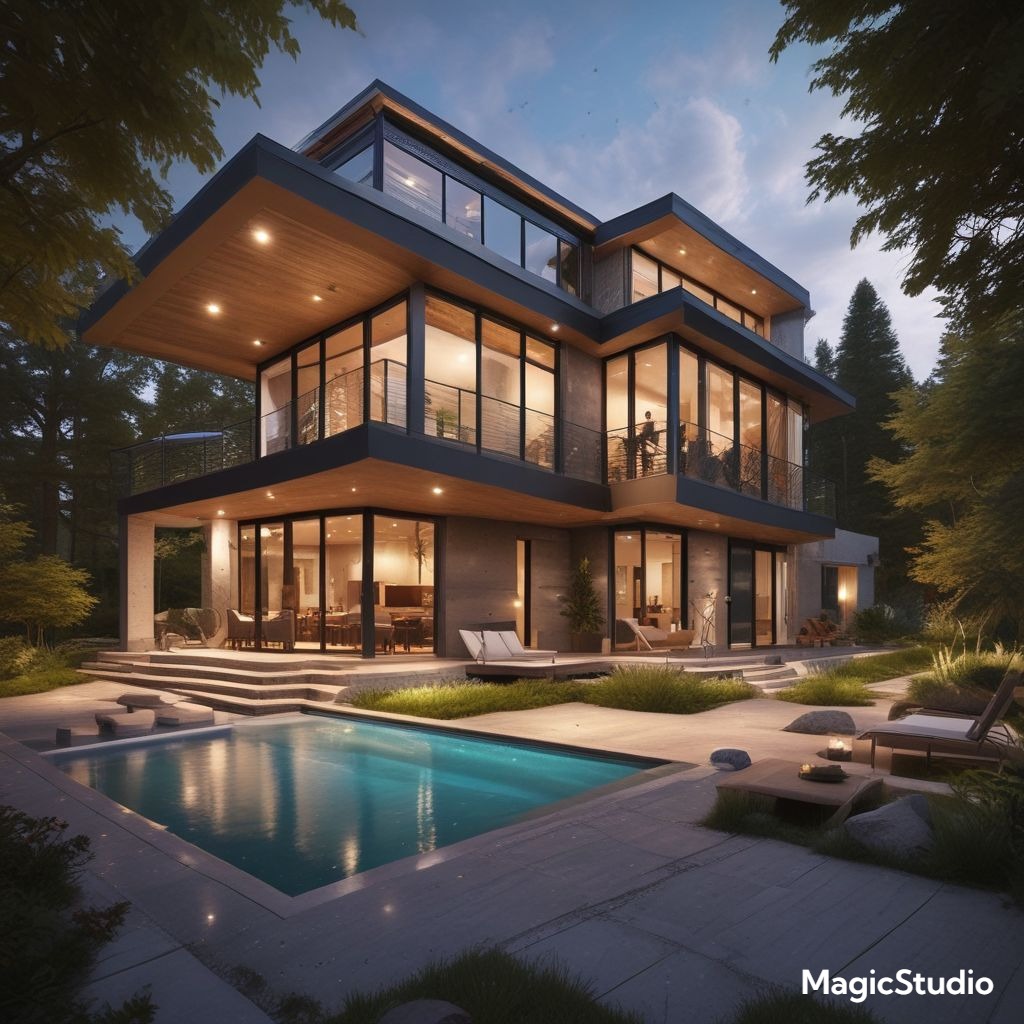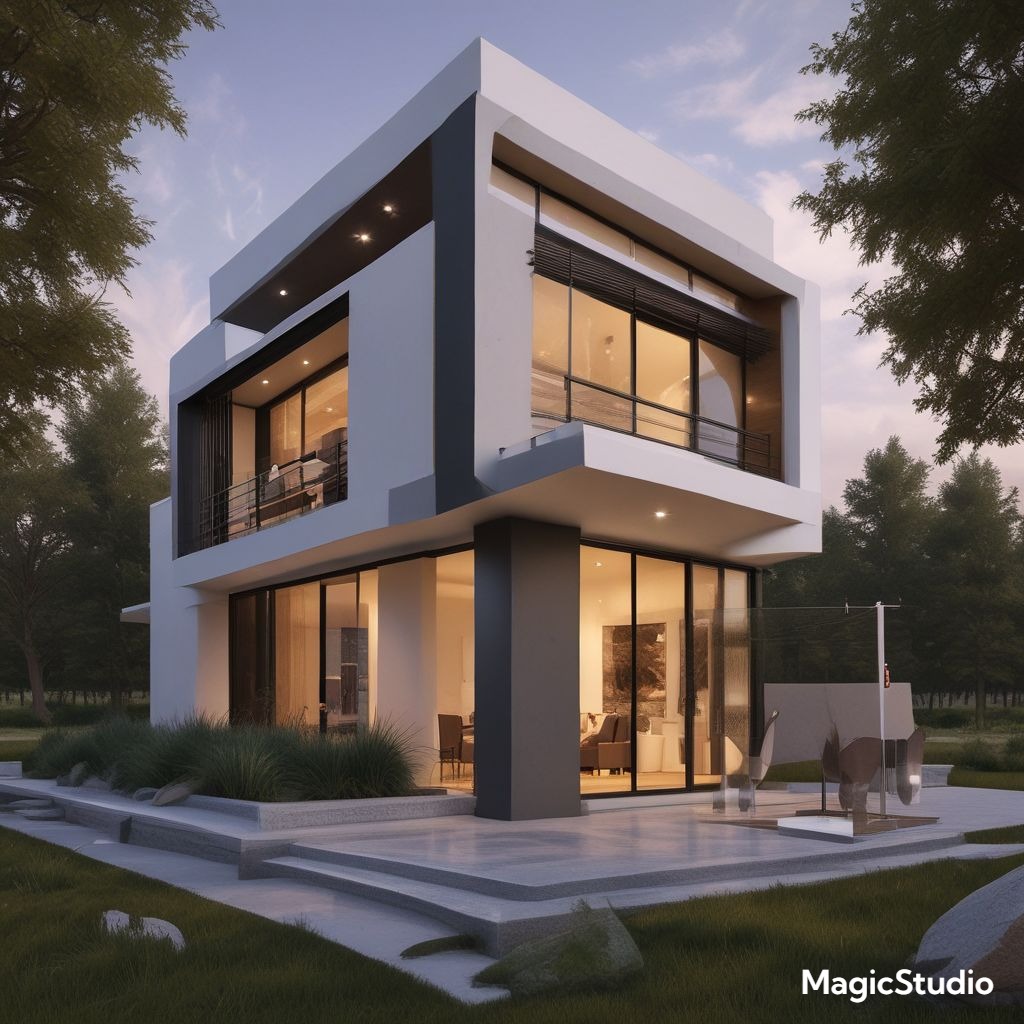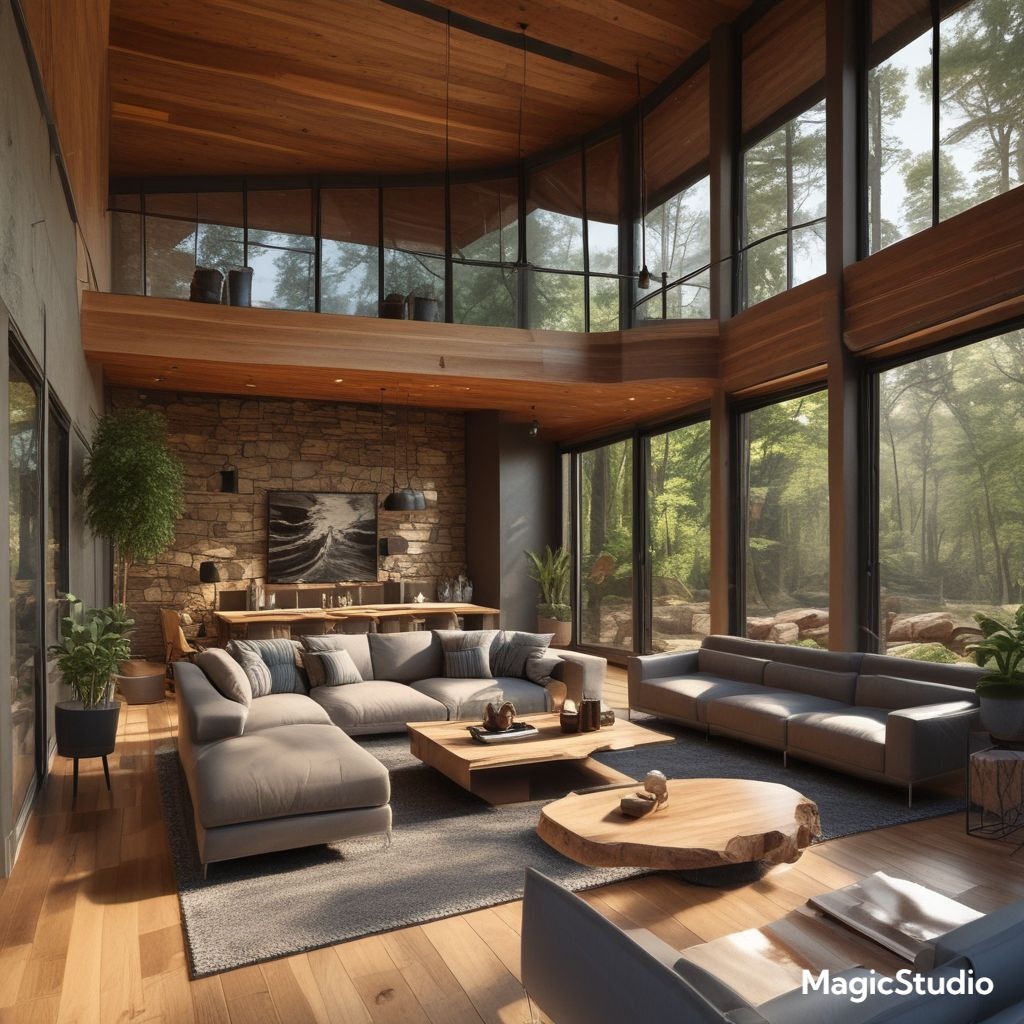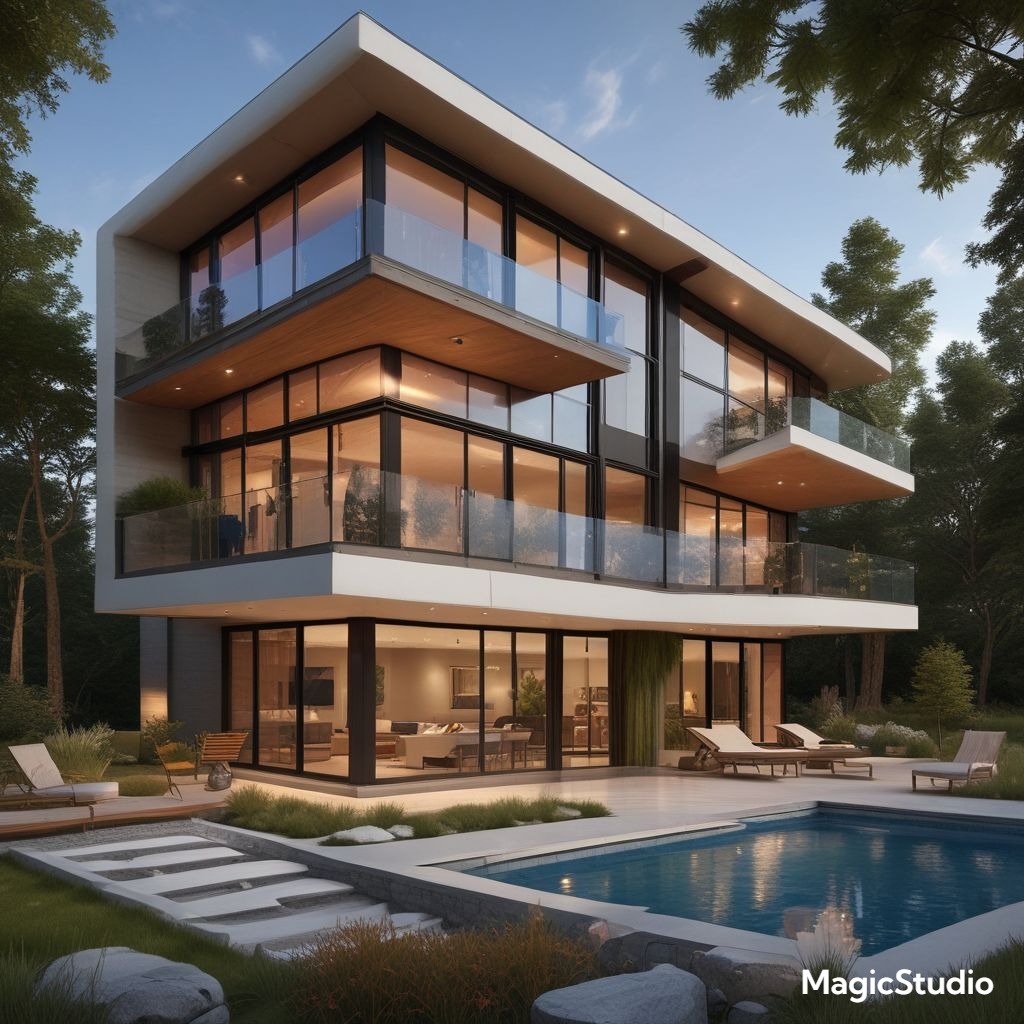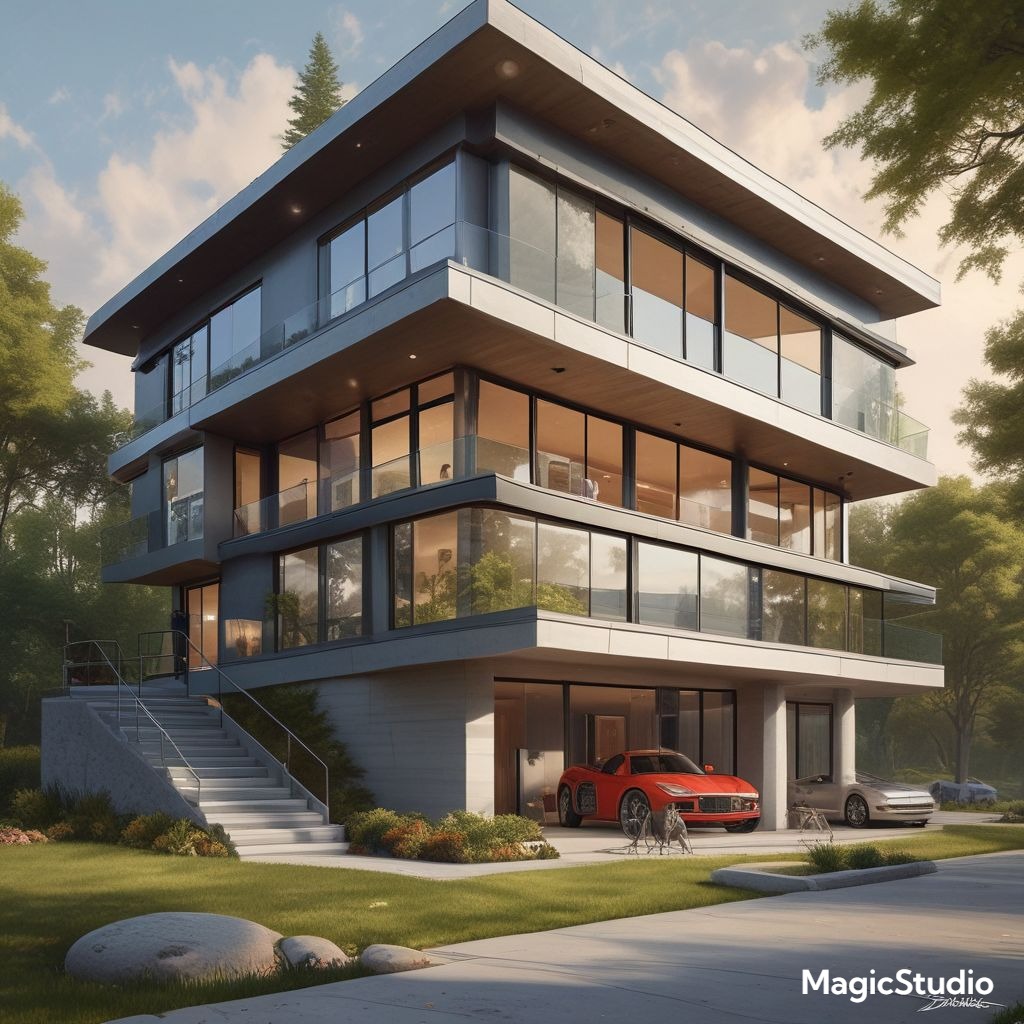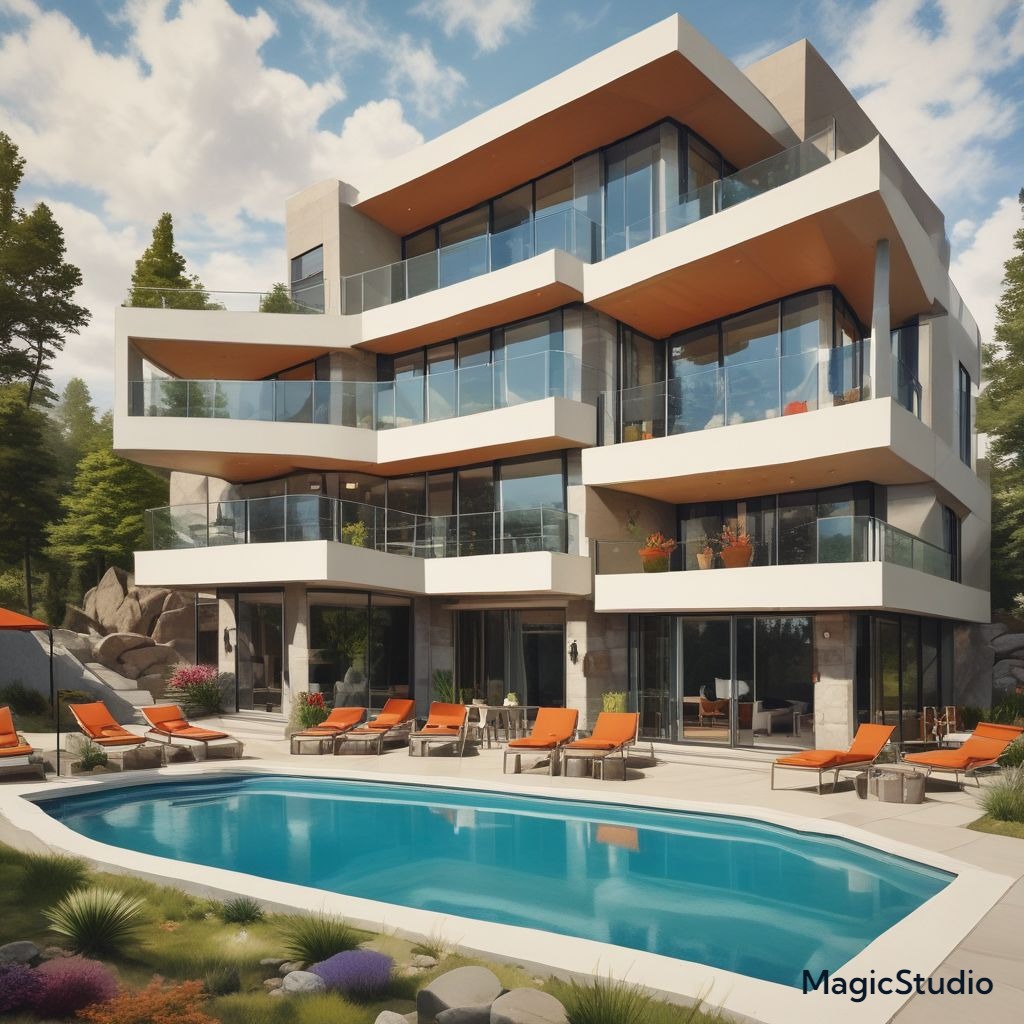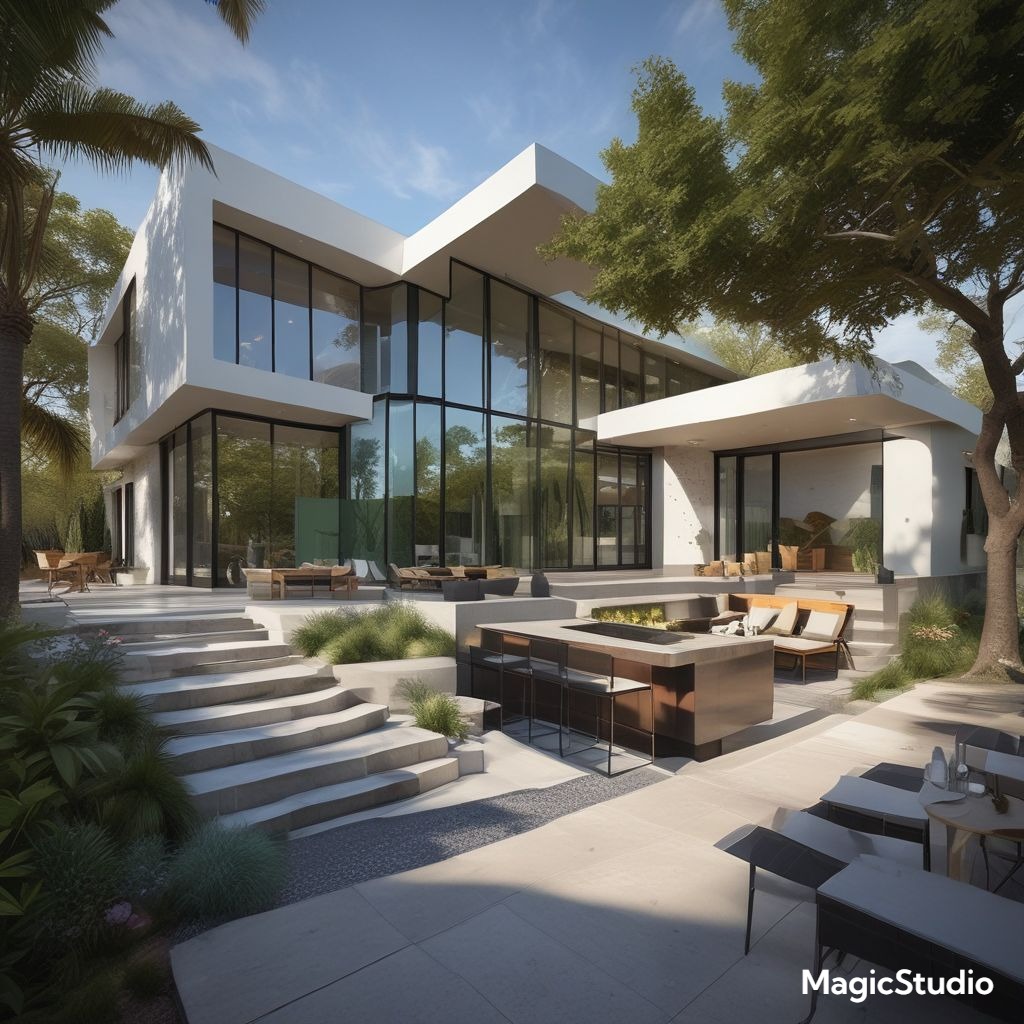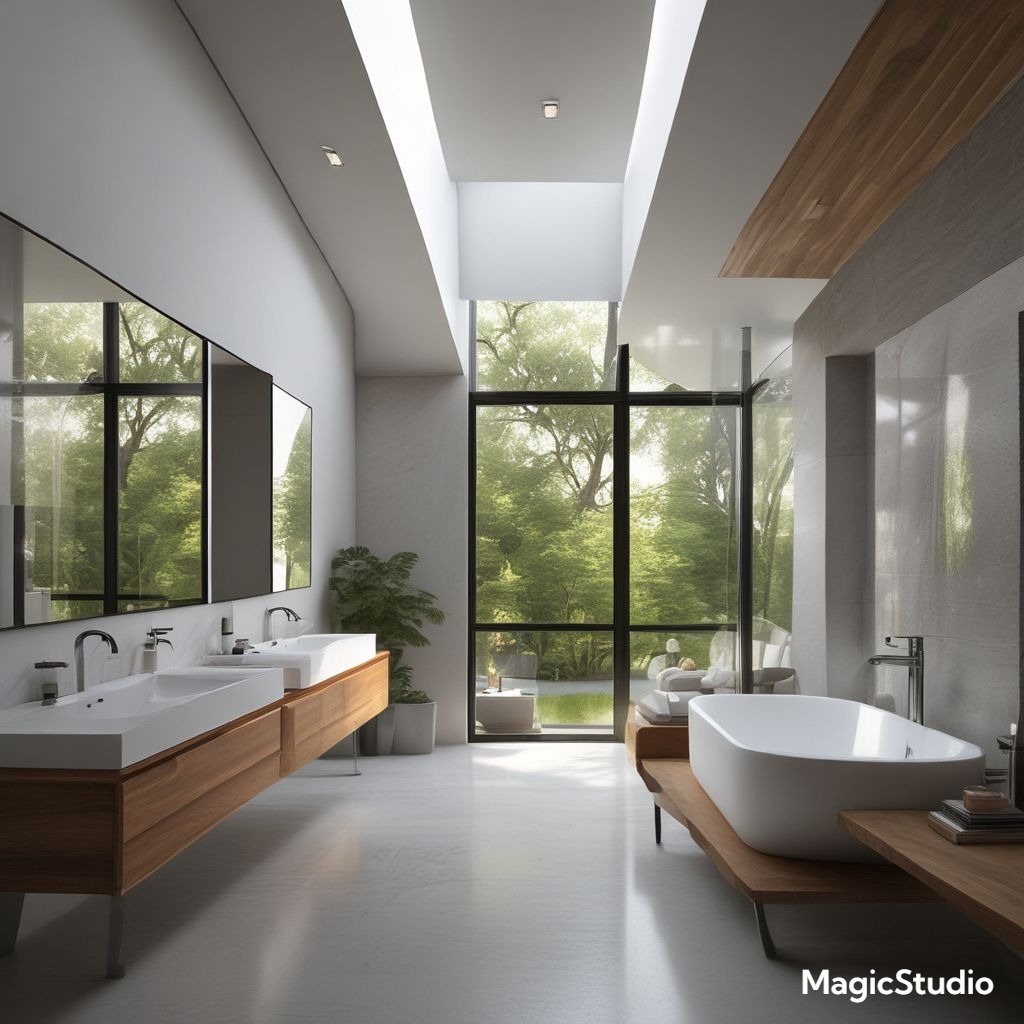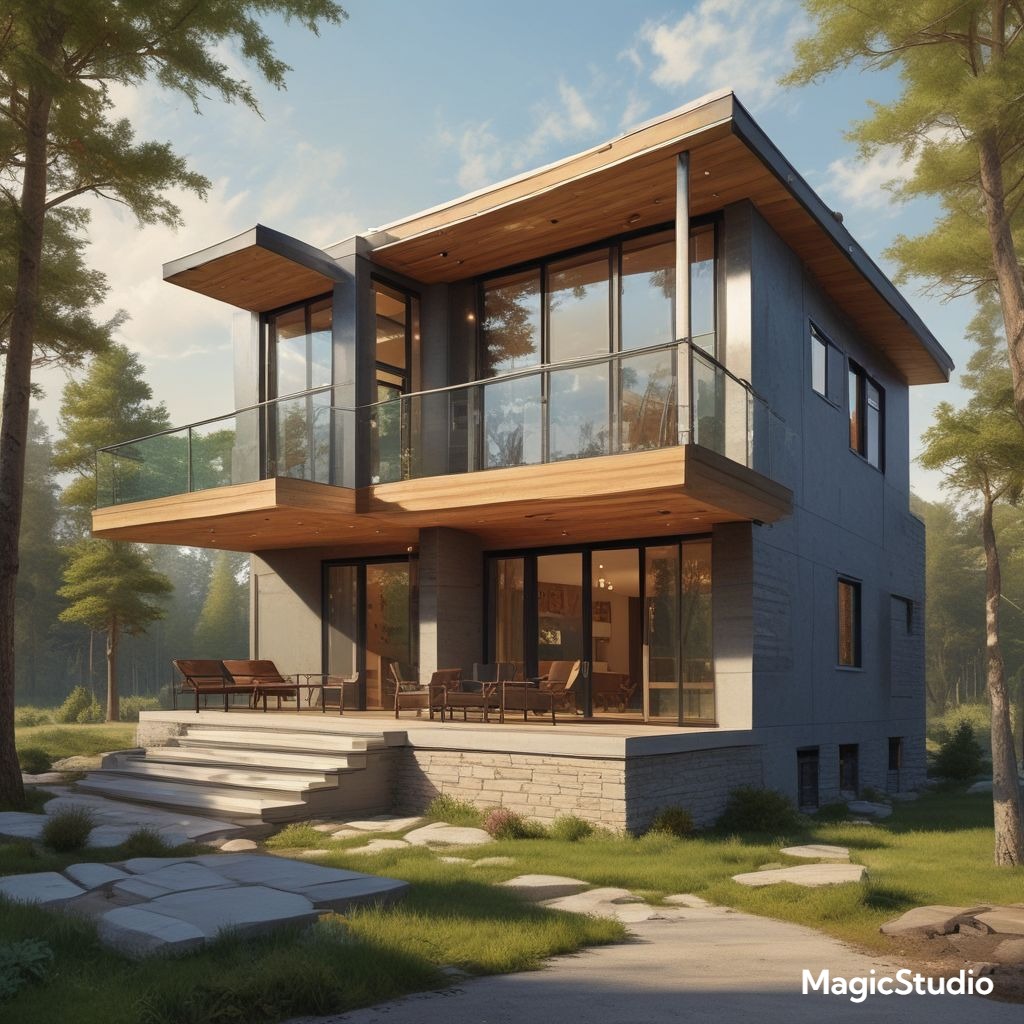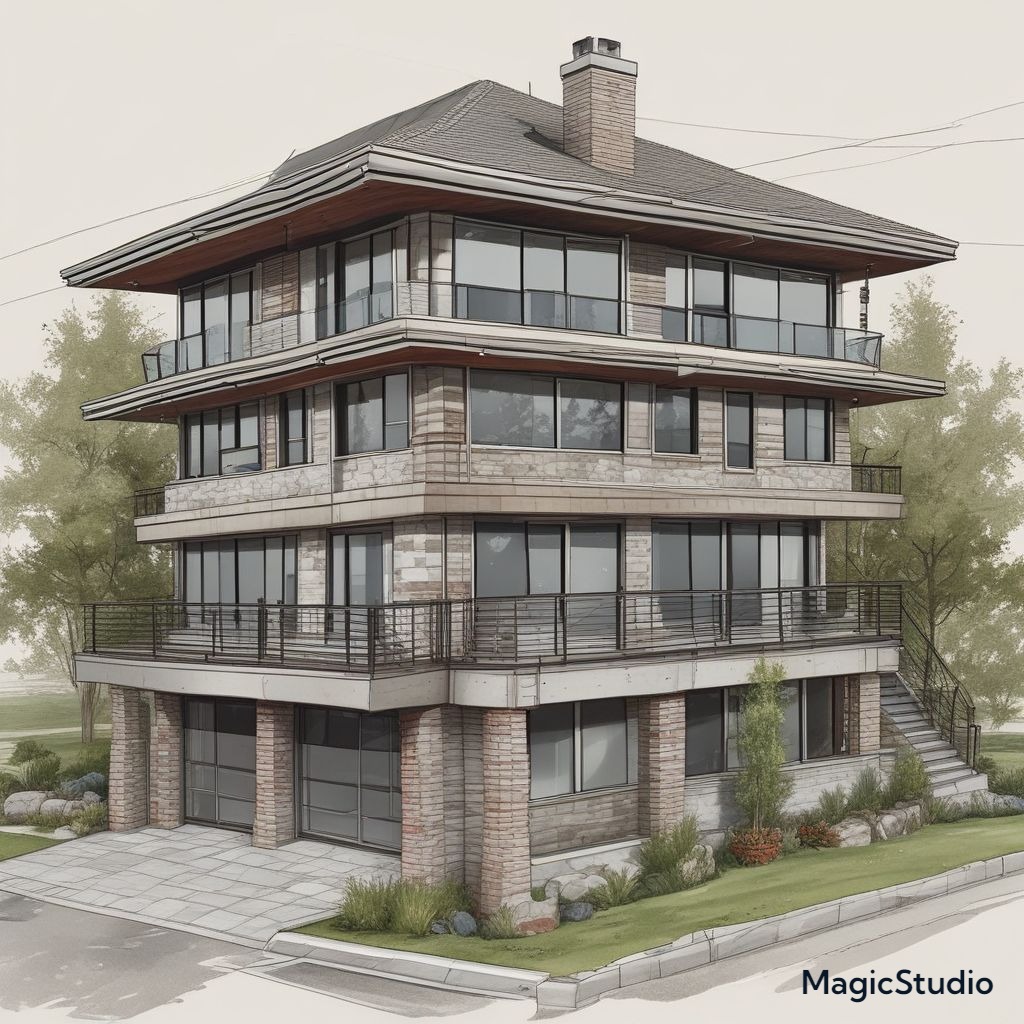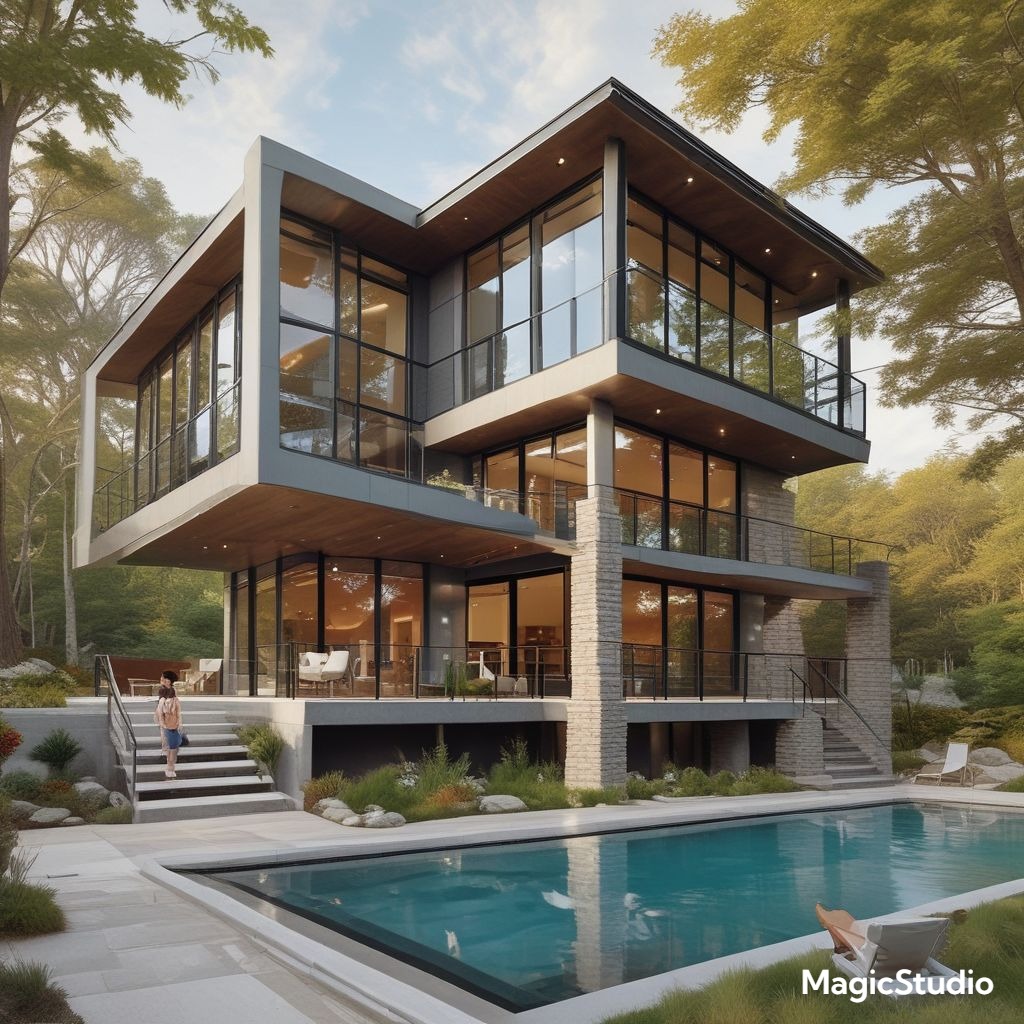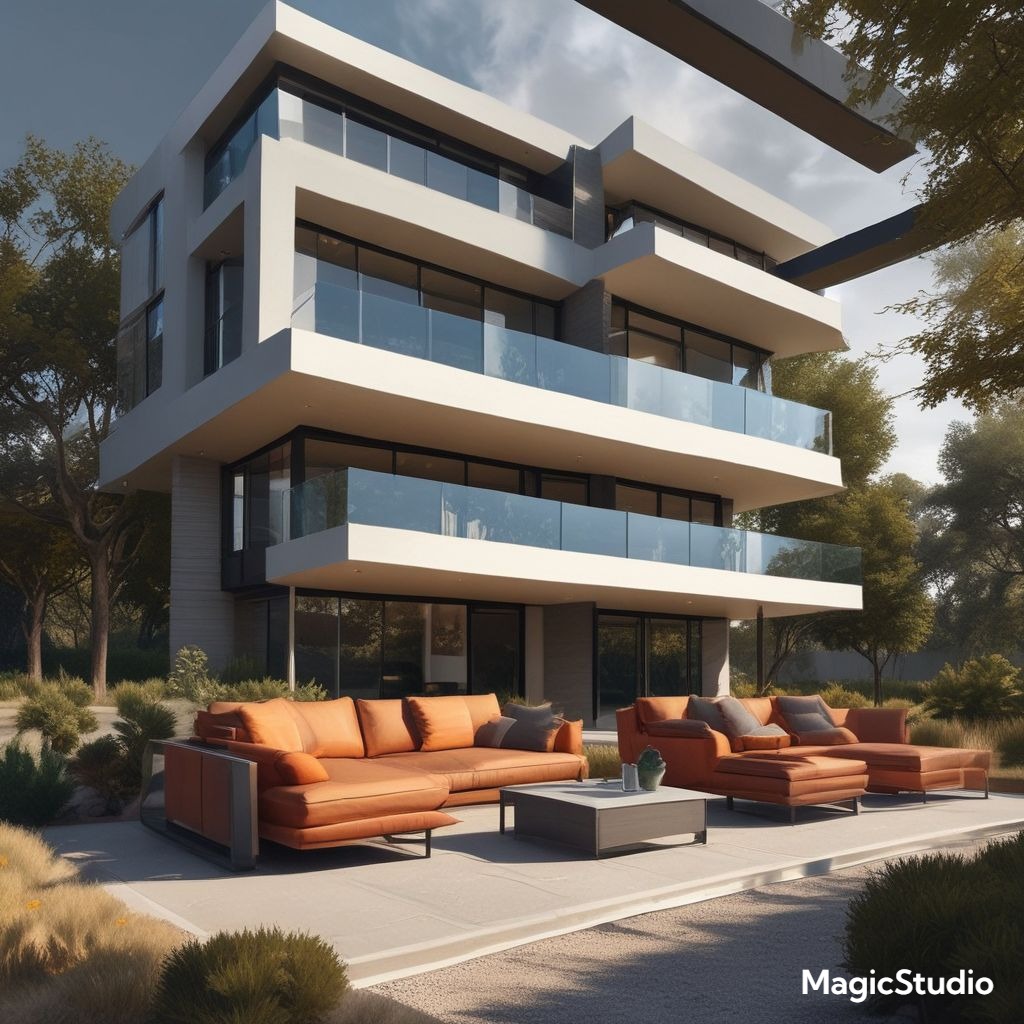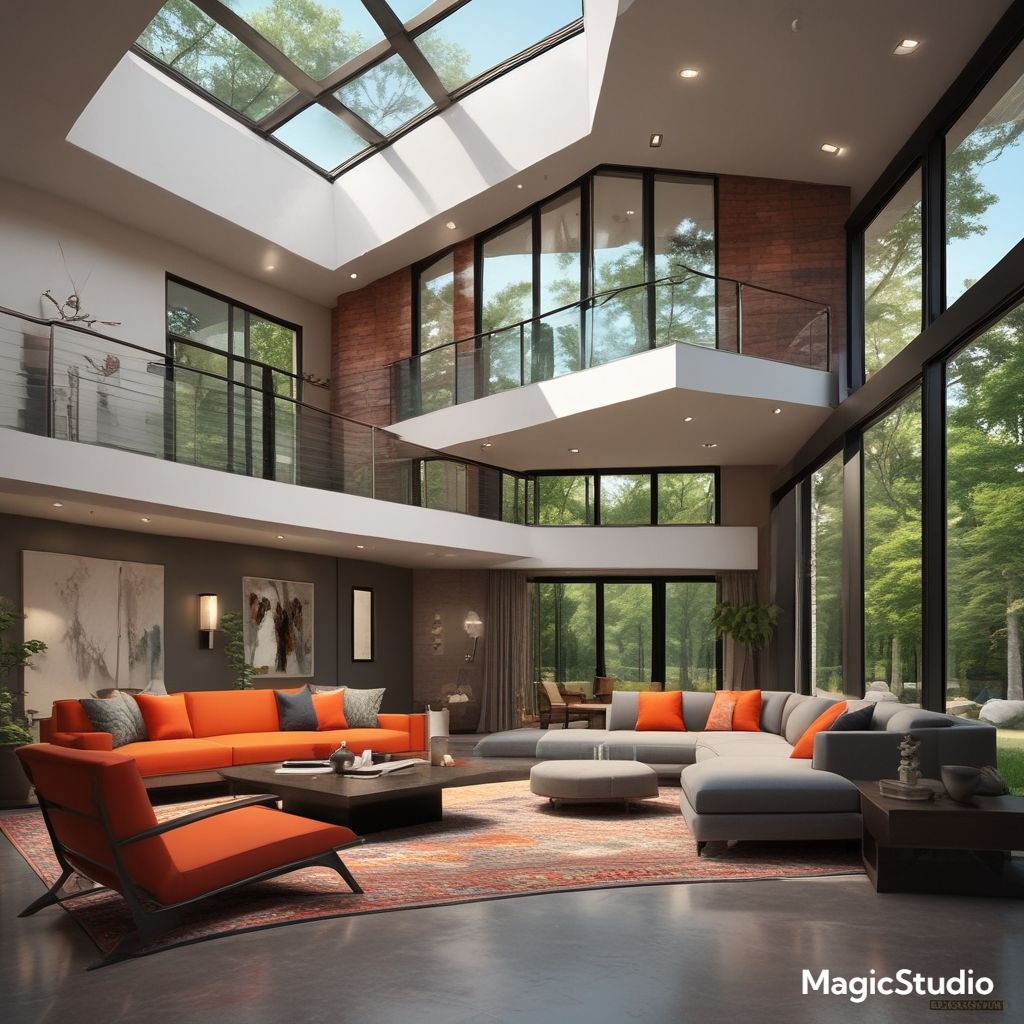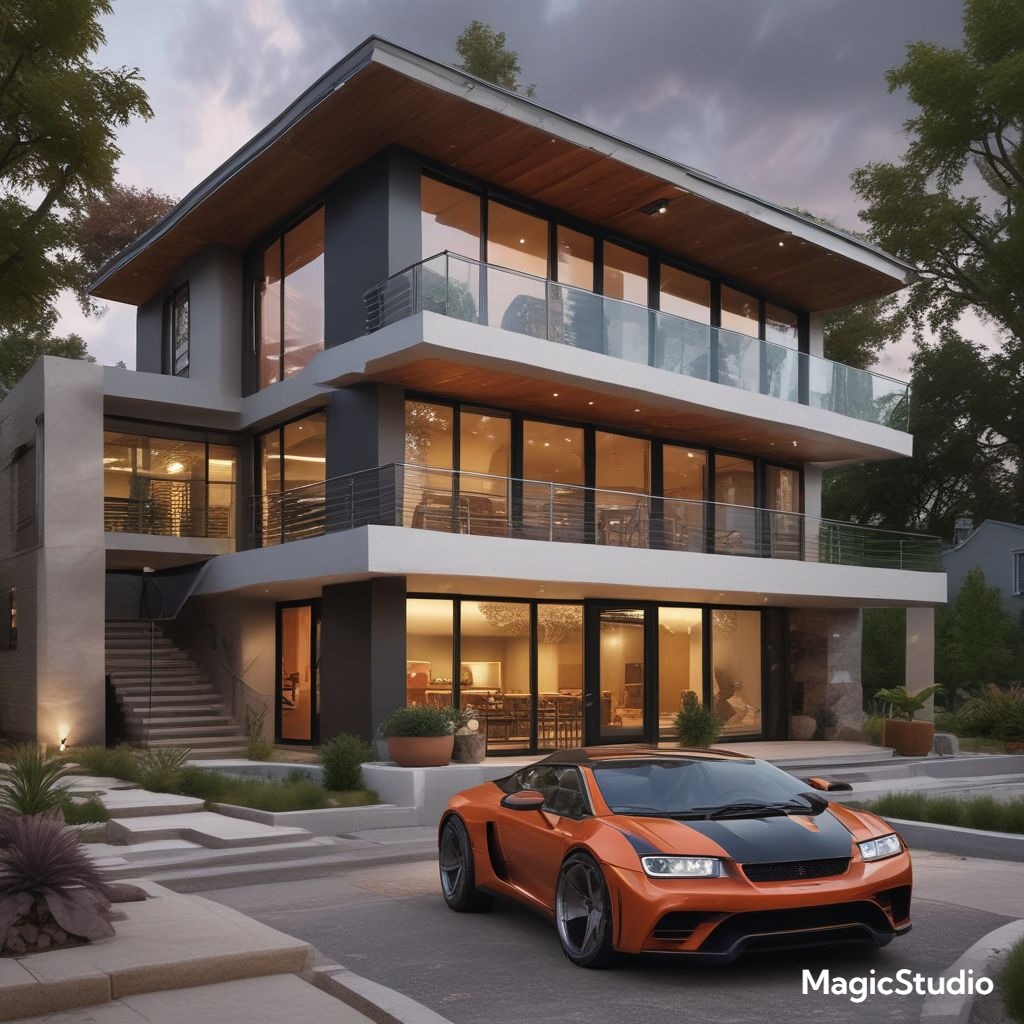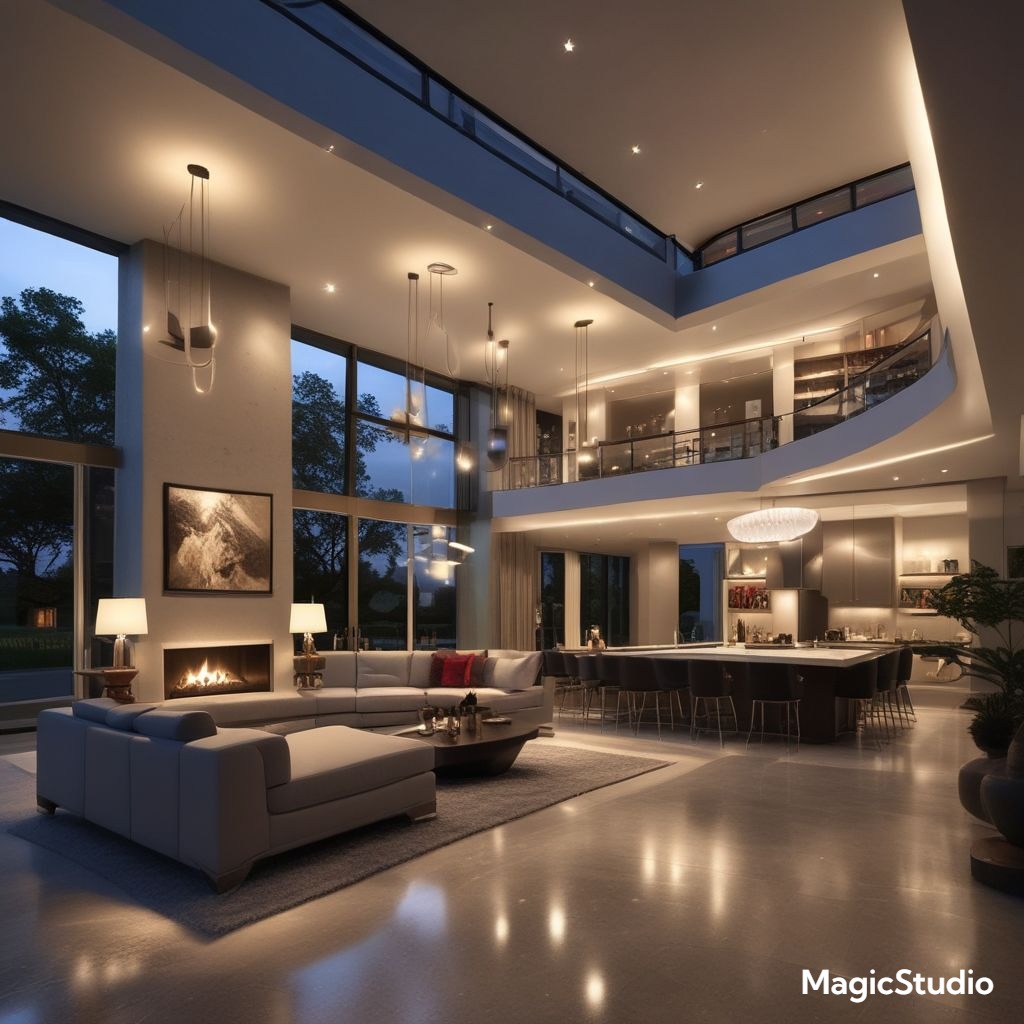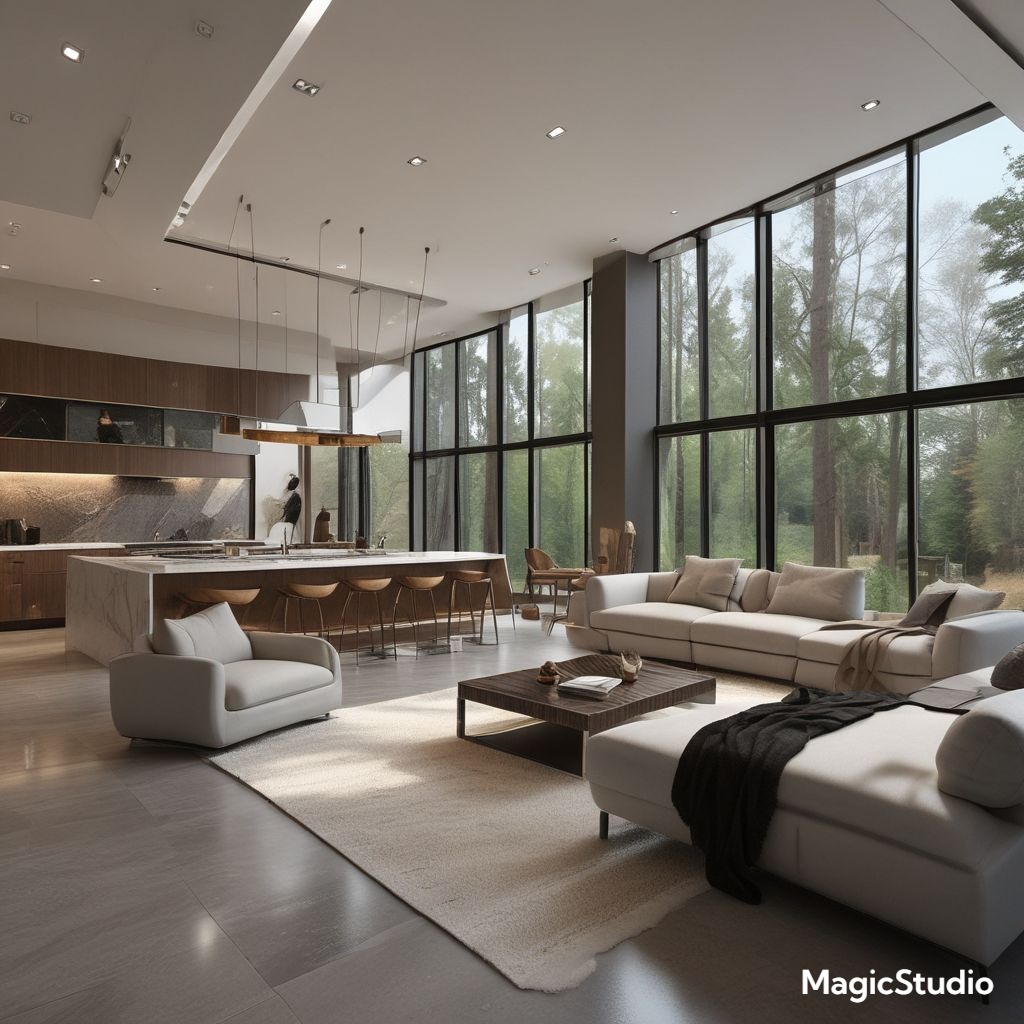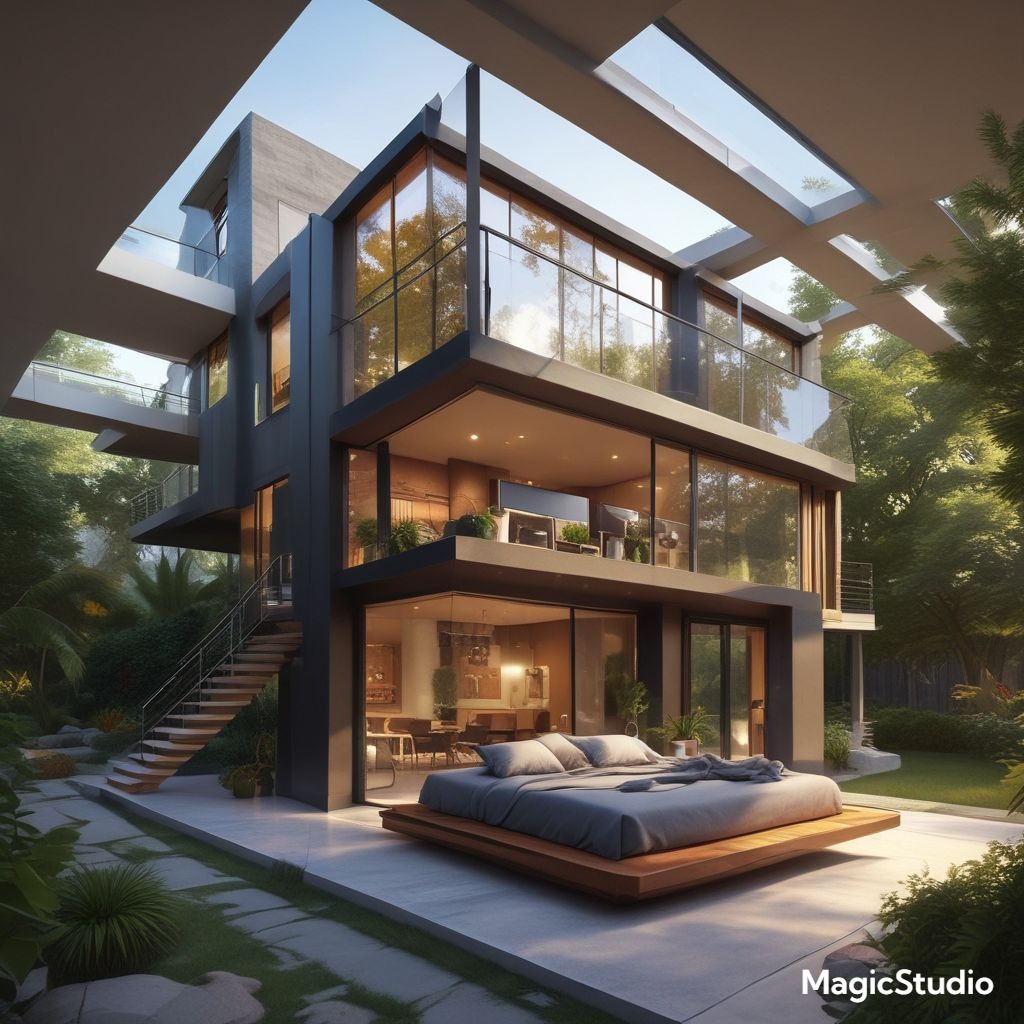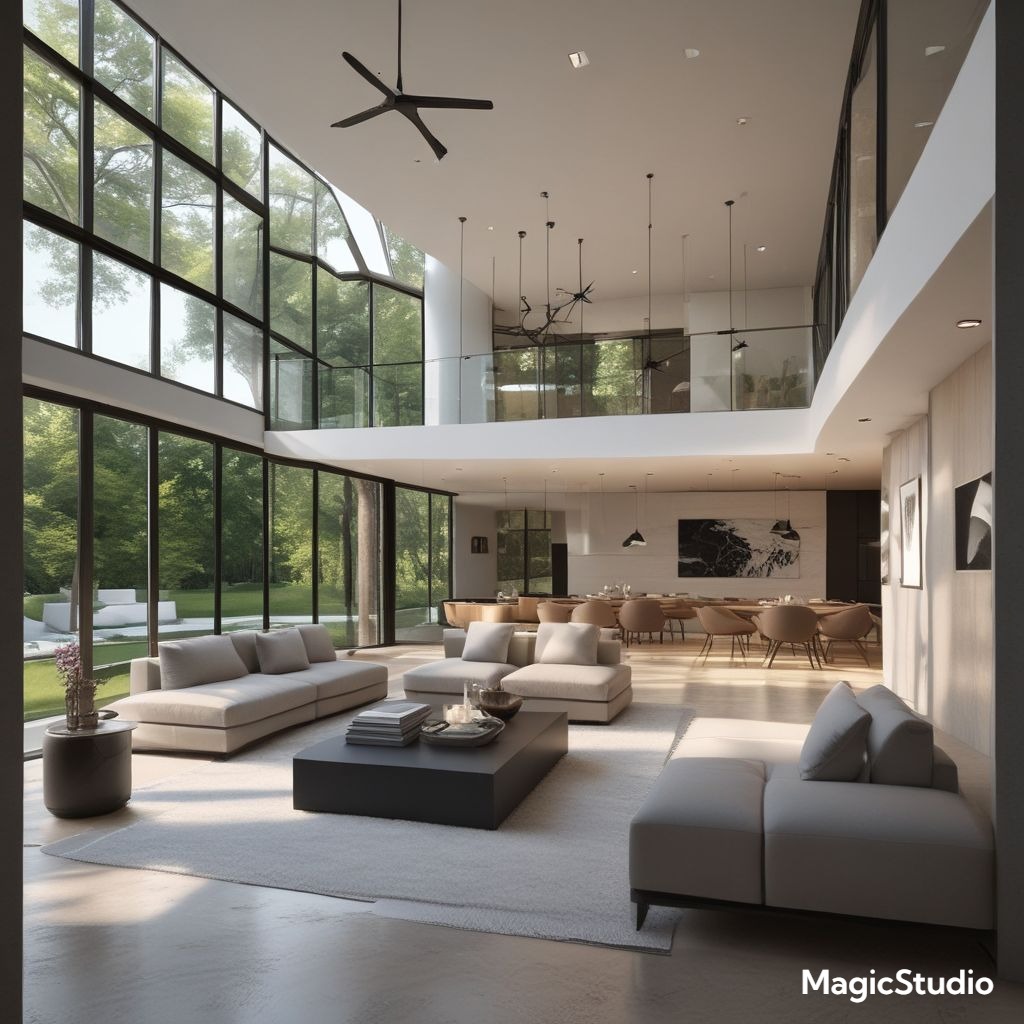Designing a six-bedroom modern house is a dream come true for many families. With ample space to accommodate everyone comfortably, modern homes offer a blend of functionality and aesthetics, making them ideal for both everyday life and entertaining guests. This article explores 30 design ideas that capture the essence of modern architecture and offer inspiration for creating your dream home.
Open Floor Plans with Flexible Living Spaces
Modern design prioritizes open floor plans, creating a seamless flow between living areas. Large, multi-functional spaces allow for flexible living, accommodating various activities and seamlessly transitioning from day to night. This openness is further enhanced by large windows and glass doors, maximizing natural light and blurring the lines between indoors and outdoors. Popular in both the US and EU, open floor plans are especially favored in contemporary homes, promoting a sense of spaciousness and connectivity.
Minimalist Design with Clean Lines
Minimalism reigns supreme in modern architecture. Clean lines, geometric shapes, and a focus on functionality are hallmarks of this style. The use of neutral color palettes, such as white, grey, black, and beige, creates a serene and sophisticated backdrop. This minimalist approach is further enhanced by streamlined furniture with minimal ornamentation, allowing the architecture to take center stage. This design aesthetic is highly sought after in both the US and EU, where a focus on simplicity and functionality is valued.
Natural Materials and Textures
Modern homes embrace natural materials like wood, stone, and concrete, adding warmth and texture to the minimalist aesthetic. These materials are often used in their raw form, highlighting their natural beauty. Wood flooring, stone countertops, and concrete walls add depth and character to the interior spaces. The use of natural materials aligns with the growing emphasis on sustainability in both the US and EU, reflecting a desire for eco-conscious design choices.
Biophilic Design for Indoor-Outdoor Connection
Biophilic design, which incorporates elements of nature into the built environment, is gaining popularity in modern homes. This approach emphasizes the connection between humans and nature, promoting well-being and reducing stress. Large windows, green walls, and indoor gardens allow nature to seamlessly integrate with the interior spaces. This trend is particularly popular in the EU, where a strong connection to nature is valued.
Smart Home Technology Integration
Modern homes embrace smart home technology to enhance comfort, convenience, and energy efficiency. Smart lighting, thermostats, security systems, and home automation systems are seamlessly integrated into the design, allowing residents to control their living spaces remotely. This focus on technological advancement is prevalent in both the US and EU, reflecting the growing demand for connected and efficient homes.
Bold Geometric Shapes
Modern architecture is characterized by bold geometric shapes, often incorporating large windows and cantilevered balconies. These elements create a dynamic and visually striking facade that reflects the modern aesthetic. The use of geometric shapes adds visual interest and depth to the design, creating a sense of dynamism and sophistication. This trend is popular in both the US and EU, where architectural experimentation and bold statements are celebrated.
Sleek and Modern Kitchen Designs
The kitchen is the heart of a modern home, and its design reflects the overall aesthetic. Sleek cabinets with minimalist handles, high-end appliances, and open shelving are key elements of a modern kitchen. The use of natural materials like quartz or granite countertops adds sophistication and durability. The open plan layout allows the kitchen to seamlessly flow into the living and dining areas, creating a social and inviting space for cooking and entertaining. This design style is prevalent in both the US and EU, where kitchens are increasingly seen as central gathering places.
Minimalist Bathroom Designs
Modern bathroom design focuses on functionality and minimalism. Sleek fixtures, floating vanities, and large walk-in showers create a spa-like atmosphere. The use of natural materials like wood and stone adds a touch of warmth to the space. Large windows allow for natural light to flood the bathroom, creating a sense of openness and tranquility. This minimalist approach to bathroom design is popular in both the US and EU, reflecting a growing emphasis on creating serene and functional spaces.
Emphasis on Natural Light
Maximizing natural light is a key principle of modern design. Large windows, skylights, and glass doors allow sunlight to flood the interior spaces, creating a bright and airy atmosphere. The use of light-colored walls and flooring further enhances the effect, creating a sense of openness and spaciousness. This focus on natural light is prevalent in both the US and EU, where daylighting is recognized as a key contributor to well-being.
Sustainable Building Practices
Modern homes prioritize sustainable building practices, reducing their environmental impact. This includes using energy-efficient appliances, solar panels, and green building materials. The use of passive solar design techniques, such as strategically placed windows and overhangs, optimizes natural light and reduces energy consumption. These sustainable practices are increasingly popular in both the US and EU, reflecting a growing awareness of environmental concerns.
Multi-Functional Design for Flexibility
Modern homes prioritize multi-functional design, maximizing the use of space. Convertible furniture, built-in storage solutions, and flexible room layouts allow spaces to adapt to different needs. This approach creates a dynamic and efficient living environment, accommodating both everyday life and special occasions. This trend is particularly popular in urban areas, where space is often limited, but functionality is essential.
Integrated Outdoor Living Spaces
Modern homes seamlessly integrate indoor and outdoor living spaces, blurring the lines between the two. Large patios, decks, and balconies are designed as extensions of the interior, allowing residents to enjoy the outdoors while maintaining a sense of connection with the home. The use of outdoor kitchens, fire pits, and comfortable seating creates a functional and inviting space for entertaining and relaxation. This integration of indoor and outdoor spaces is particularly popular in warm climates, where outdoor living is a way of life.
Contemporary Art and Decor
Modern homes often feature contemporary art and decor, adding a touch of personality and sophistication to the minimalist aesthetic. Abstract paintings, sculptures, and bold furniture pieces create visual interest and enhance the overall design. The use of art as a design element is prevalent in both the US and EU, where contemporary art is increasingly incorporated into home interiors.
Bold Color Accents
While minimalist palettes are often favoured, modern design allows for bold color accents to add personality and dynamism to the space. A single wall painted in a vibrant hue, a colorful rug, or accent chairs can inject energy and character into the neutral backdrop. The choice of colors should complement the overall design and create a cohesive and visually stimulating environment. This trend is especially popular in the US, where homeowners often embrace bolder colour choices to reflect their individual styles.
Personalized Touches and Unique Details
Modern homes are not just about minimalist aesthetics but also about creating a personalized and unique living space. This is achieved through incorporating personal touches like family photos, souvenirs from travels, and unique furniture pieces. The integration of these personal details adds warmth and individuality to the design, making the home truly feel like a reflection of the residents’ personalities. This trend is prevalent in both the US and EU, as homeowners increasingly seek to create spaces that reflect their individual tastes and stories.
Sophisticated Lighting Design
Lighting plays a crucial role in creating the right ambiance in a modern home. Layered lighting, including overhead fixtures, task lighting, and accent lighting, creates a dynamic and functional lighting scheme. The use of natural light is maximized, while artificial lighting is strategically placed to enhance the architectural details and create a warm and inviting atmosphere. This focus on sophisticated lighting design is prevalent in both the US and EU, where lighting is increasingly recognized as a key element of interior design.
Luxurious Materials and Finishes
Modern design embraces luxurious materials and finishes, adding an element of indulgence and sophistication to the home. High-quality materials like marble, leather, and stainless steel are incorporated into the design, creating a luxurious and elegant feel. These materials not only enhance the aesthetics but also contribute to the durability and longevity of the home. This trend is particularly popular in high-end homes in both the US and EU, where a focus on luxury and craftsmanship is valued.
Technology-Enhanced Comfort and Convenience
Modern homes prioritize technology-enhanced comfort and convenience. This includes smart home features like voice control systems, automated blinds, and advanced security systems. These technologies enhance the functionality and livability of the home, providing residents with a seamless and comfortable living experience. This trend is prevalent in both the US and EU, where technology is increasingly integrated into everyday life.
Creative Use of Space
Modern design is all about maximizing space and creating a sense of openness. This is achieved through creative use of space, such as incorporating hidden storage solutions, multi-functional furniture, and open-plan layouts. These design strategies create a functional and inviting environment while maximizing the use of every square foot. This trend is particularly popular in urban areas, where space is often limited but functionality is essential.
Minimalist Furniture and Decor
Modern design prioritizes minimalism when it comes to furniture and decor. Clean lines, simple shapes, and neutral color palettes are key features of this style. The use of high-quality materials like leather, wood, and metal adds a touch of sophistication and durability to the furniture pieces. The minimalist approach to furniture and decor creates a sense of spaciousness and allows the architectural details to take center stage. This trend is prevalent in both the US and EU, where a focus on simplicity and functionality is valued.
